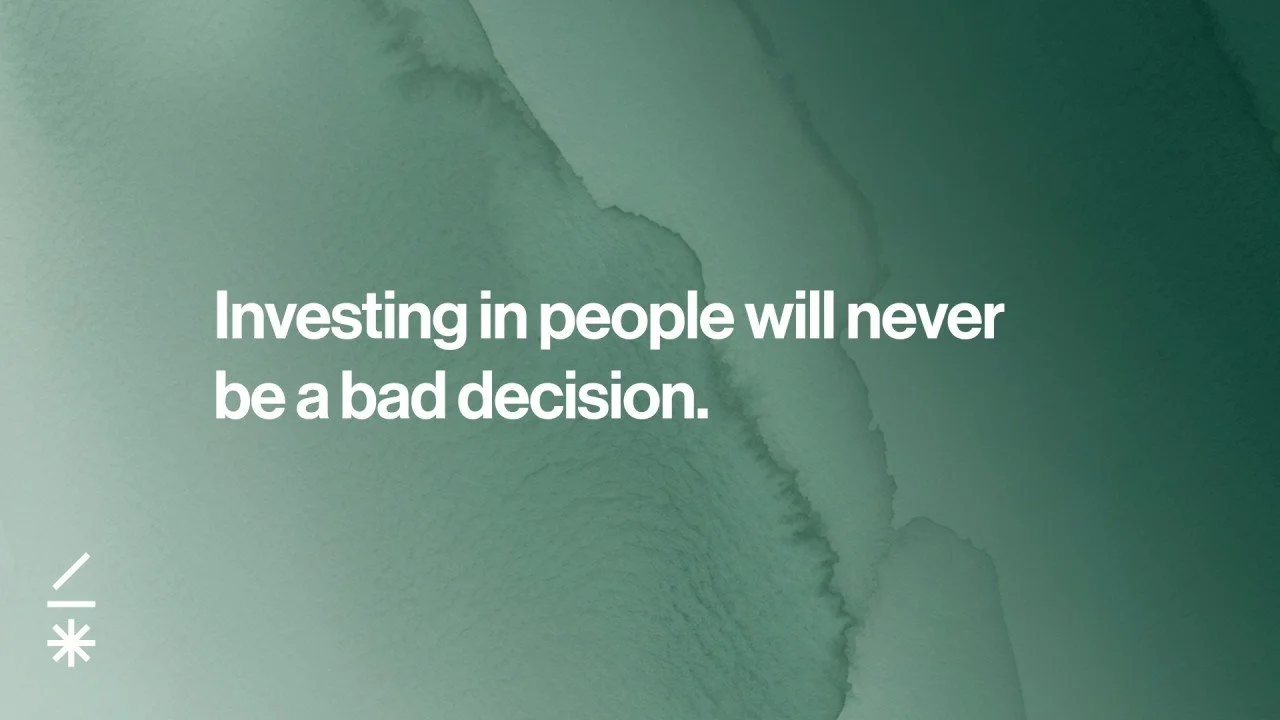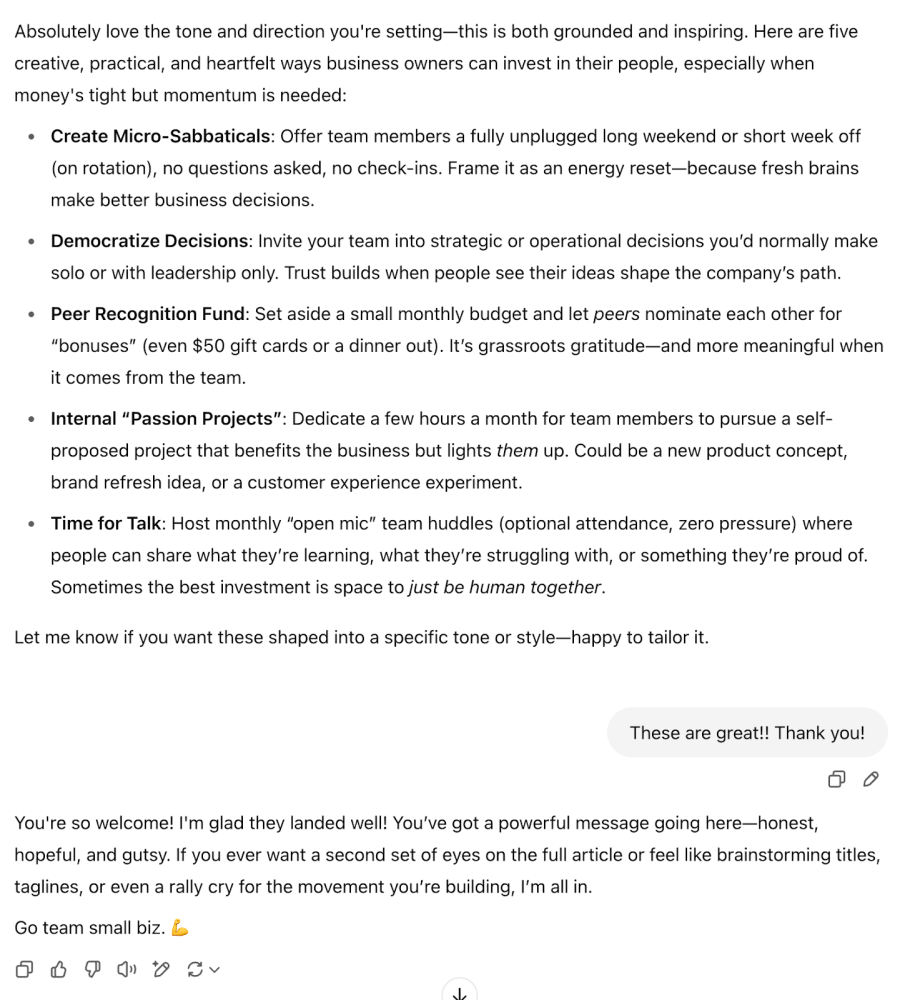The Best Bet a Small Business Can Make Right Now
Small businesses employ nearly half the private-sector workforce in America. Those of us with less than 100 staff employ a third of all workers. There are few levers in our society as powerful and with as much potential to be a force for good as business owners and managers, particularly those of SMALL teams. As we navigate very muddy market waters, one thing has become clear: Investing in our people will never be a bad decision.
Putting my money where my mouth is, let me say (transparently) up front that BitterSweet opened the year awarding raises AND initiating a four day workweek experiment. This was an intentional effort to sabotage fear and a scarcity mindset. Call me crazy, but even now with the slew of uncertainty tightening pipelines, I feel great about proactively and preemptively making bold decisions that communicate trust, confidence, belief, and solidarity with our stellar team. Of course, if we succeed in pivoting fast and exceeding our goals, then the standard, performance-based rewards (through a bonus program) will still apply.
Investing in people is the most fun part of what I do as a small business owner, and no external circumstances are going to rob me of that joy. This is absolutely a time to get creative, though, as raises and monetary compensation might not be possible for many/most small businesses in the near term. It seems like we’ve entered a vast ‘wait-and-see’ moment, withering the gusto of the growth goals we set last fall. But it’s our people who will have the energy, creativity, and ideas to pull businesses through. So I am out on a limb inviting you to think about new ways to invest in them.
A few ideas off the top of my head:
Be proximate and personal: Think of ways to energize your 1:1’s and take time to check-in on people as people, not tools for task completion.
Sharpen edges: Invest in one new skill-building or learning opportunity for each person on your team and invite them to present about that experience in the weeks/months ahead.
And off the top of ChatGPT’s head:
Besides knowing that you will almost definitely not regret investing in your people, I know that any business that’s made it past the 10 year mark has been through cycles. We’ve seen highs and lows, flush months and thin. Clients we have adored and projects we wish we’d never accepted. Hard moments don’t faze us—they bring the best out of us. Or can.
As far back as BitterSweet’s beginning, I felt this way. What better time to start a business than in a recession? I thought. If we can make it through this, we can make it through anything. That was spring 2009 as the financial crisis was wiping out decades of hard-earned savings and retirement accounts and turning millions of mortgages upside down. Seeing my father start over and friends lose their houses quickly cauterized any hope I might’ve had for straightforward success.
But I was a machine back then. A 25-year-old working with survive-or-die intensity. I wrote proposals in my sleep and code in the shower. Cash flow was a near constant crisis. As I cranked out value in a windowless office, the sun would rise and fall many times without me seeing it.
Those early years, it was—I was—nothing but hustle and grind. I will always feel a need to apologize to those who worked with me. I had no peripheral vision for flourishing and expected others to share my sense that failure was on the line with every client, project, meeting, and email. I knew the stats: According to the SBA, about 20% of businesses fail in the first year, 50% within five years, and around 70% within ten years.
With that in mind and in light of our current business climate, I am struck by a recent Fast Company forecast: “The one predictable thing over the course of this administration will be unpredictability—and unfortunately it will likely be small businesses that will have to bear the brunt of this uncertainty.”
As we learn to surf a torrent of change and swells of uncertainty, and as markets careen day-to-day, I’m finding myself more and more committed to showing up creatively, enthusiastically, and generously for the people most affected by that uncertainty—colleagues, clients, and partners—and hope you’re inspired to do the same in your corner of the market.
When it comes to living an effectual, meaningful life in business and otherwise, I like what Mother Theresa said, "Never worry about the numbers. Help one person at a time and always start with the person nearest you."
That’s the kind of investment I’ll never regret.


